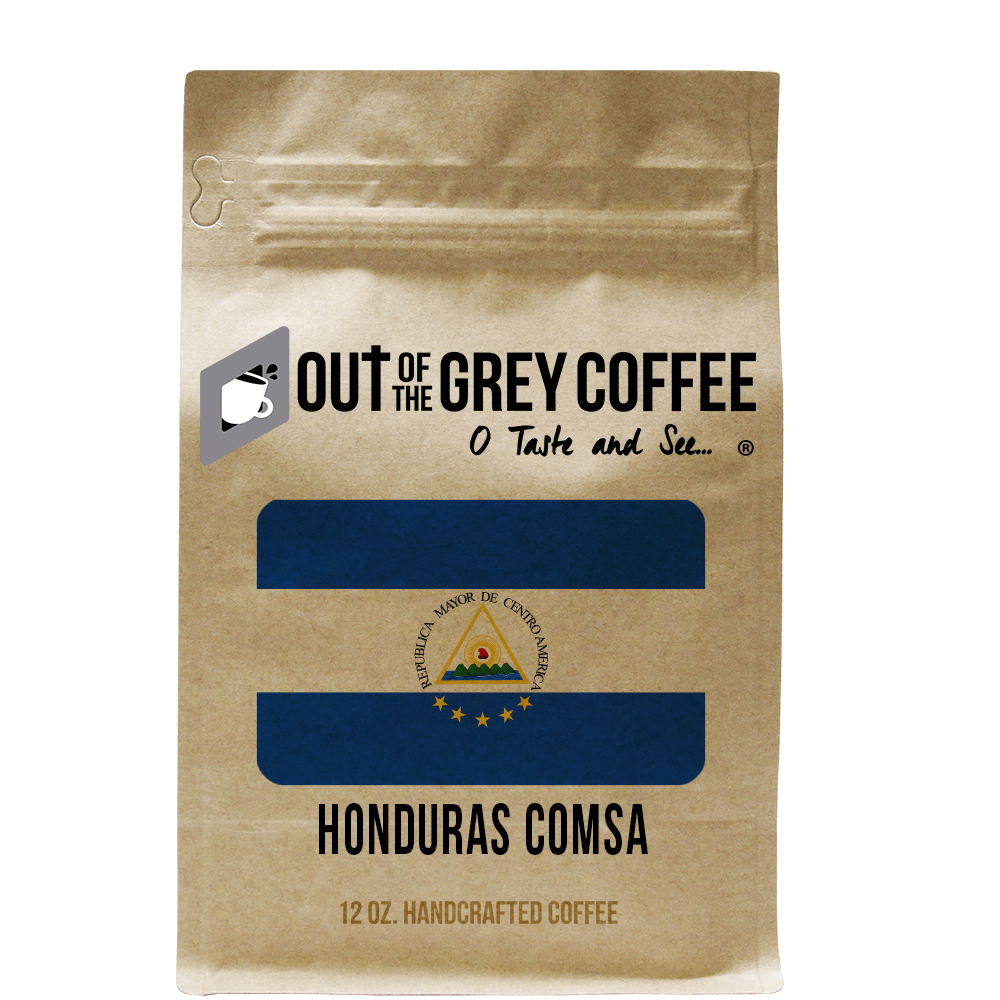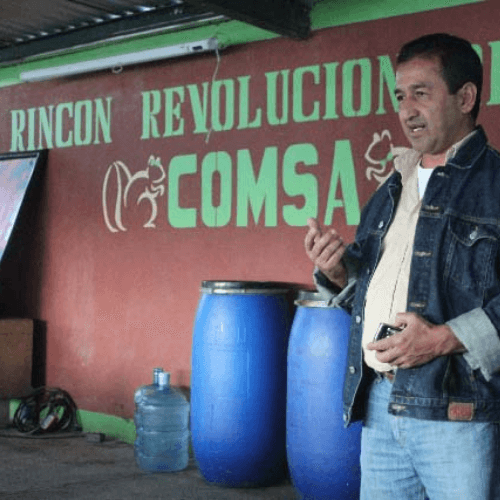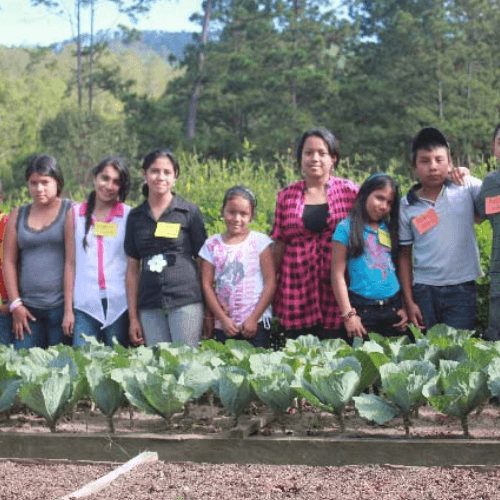



Single Origin - Honduras COMSA SHG HONEY - Fair Trade Coffee
$22.99 - $23.48
Rich body, smooth mouthfeel flavors of caramel, lemon, honeydew melon and chocolate fudge finish.
Perfect choice for coffee drinkers suffering from digestive issues, or those that just prefer low acidic coffees with a higher level of antioxidants.
100% delicious!
Roast: Dark Medium
Processing: Honey processed, depulped and immediately dried on raised screens in the sun.
Altitude: 1250 - 1600 M.A.S.L.
Harvest: November - March
12 oz. Handcrafted Fair Trade Coffee
Here is one of those rare opportunities where all that is good about coffee intersect. Simply a trifecta of organic farm management practices; traceable to producers in the Marcala region, a protected designation of origin (DENOMINACION DE ORIGEN CAFE DE MARCALA); and a meticulous post-harvest standard of hand sorting cherry, cherry floating to remove less dense and damaged beans, proper fermentation, and long drying times. It starts with a concept called Finca Humana (the Human Farm) at Café Organico Marcala, S.A. (COMSA), where the wellbeing of humans is the core objective and educating more than 1,500 producer-members to successfully live in harmony with nature is everywhere.
At La Fortaleza, the COMSA biodynamic demonstration farm, the focus of transferring knowledge takes place through week-long seminars called Pata de Chucho (pawprints left by a stray dog), which aptly reveals COMSA’s dogged exploration for human productivity in harmony with nature. The trailblazing ideas for using organic matter to productively cultivate high quality coffee is only a sliver of what COMSA teaches about the power of nature through the Finca Humana philosophy. COMSA dedicates funding from the proceeds of coffee sales to run a cutting edge international school dedicated to filling children’s minds with possibility, and training them to be the future leaders of Finca Humana. This particular lot is a honey process carried out at COMSA’s centralized wet-mill dedicated to process organic lots. After farmers meticulously harvest ripe cherries and deliver them to COMSA, the post-harvest process begins by floating cherries to eliminate under ripe and damaged coffee. The water is recycled several times to ensure conservation of water. Next the cherries are depulped and the mucilage-covered beans are dried on patios to 11 percent moisture and then stored until preparation for export. COMSA also has its own dry-mill where coffee is hulled and sorted by density and color in preparation for export. COMSA has a fully equipped cupping lab and several Q graders who check the quality prior to shipping.
The COMSA coffee production strives for consistent, quality coffee beans, while also prioritizing a lifestyle that promotes economic stability and growth opportunities for the farmers themselves. This coffee society also produces their beans through sustainable practices.
Café Orgánico Marcala (COMSA) was founded in December of 2001 with a vision of creating new and alternative development opportunities for small-scale coffee farmers in the region of Marcala, Honduras. The organization originally brought together sixty-nine small-scale farmers of Lenca origin who were interested in selling their coffee collectively under the umbrella of a rural credit union.
At that time, the predominant production system in the region used conventional (chemical) practices and sold to the local coyotes, often at prices that did not even cover the farmers’ production costs. One of the primary founding objectives of COMSA was to seek out and promote new ways of thinking – both in production, moving from conventional to organic production; and in markets, moving from commercial to specialty buyers.
In the beginning the challenges were enormous, as transitioning from conventional to organic practices can cause dramatic drops in production yields. Many members became discouraged and dropped out of the organization. In response, the COMSA Board of Directors and technical team looked for new methods of intensive organics to support their transition and established a strategic alliance with the Corporación Educativa para el Desarrollo Costarricense – CEDECO. With CEDECO’s support, staff, and members of COMSA learned new and innovative practices to transform their lands into integrated organic farms – promoting soil and water conservation, and the preservation of local plant and wildlife. Meanwhile, members began to see improvements in coffee yields, better family relationships and rapid growth in membership for COMSA.
With their initial successes, members became increasingly open to experimentation with innovative organic practices. Since COMSA’s inception, it has developed its own approach to organic agriculture, adopting the five “M” of organic agriculture over time: in 2001 – use of organic Matter; 2006 – application of Micro-organisms in compost; 2010 – exploring the use of Minerals; 2012 – production of fermented live Molecules; 2013 – strengthening the grey Matter (brainpower) of their technical team, members, and strong educational program with their youth and women’s groups
Today, COMSA is 1,500 members strong, with a waiting list of producers still hoping to join the organization. Their lead farmers continue to demonstrate effective, regenerative organic practices that are both improving productivity and protecting their plants from common diseases.
In 2016, COMSA launched the Diplomado Organico, a week-long intensive training program that not only teaches innovative organic farming techniques, but also helps broaden perspectives for small-scale farmers on the relationship between their work, the ecosystem, and the health of communities on both sides of the supply chain.
ootgCoffee began working with COMSA in 2017, importing their members’ high quality green coffee with the unique regional characteristics of Marcala.
For the past several years, ootgCoffee’s green-buying team has continued to explore relationships in Honduras, searching for just the right combination of microclimate, variety, processing, and attention to detail. We have developed strong relationships with quality-focused cooperatives such as Cooperativa RAOS, a 250-member organization in Marcala, La Paz, from which we have seen some of the most stable results and the highest potential for microlots. We are also exploring another potential microlot-development program in the southwest, near the Salvadoran border.
HISTORY
Perhaps unsurprisingly, the “origin” story of Honduras isn’t clear: Reports vary about when and how coffee first came to the country, though conventional wisdom puts the first noteworthy harvest year at 1804, in the Comayagua department. No matter when the plants were first brought here, they have played an increasingly significant role in the national economy since then—so much so that credit is largely given to coffee for preventing the national government from going bankrupt during financial crisis in 2009.
Established in 1970 (and privatized in 2000), the country’s Instituto Hondureño del Cafe (IHCAFE) has sought to improve the infrastructure that would encourage the development of higher-quality markets, as well as provide hardier varieties and technological advancements, especially to the many smallholder growers. The organization is also very involved in organizing and marketing the country’s Cup of Excellences competitions, which have brought a noteworthy increase in attention and credit given to the finest lots the producers here have to offer.
POTENTIAL
Despite lacking the “sexy” reputation of other Central American coffee-growing countries like Costa Rica, El Salvador, and Guatemala, Honduras has quietly become the bigger producer, exporting more volume than any other nation in the region, and the seventh overall in the world for exports. While there is certainly quantity coming out of Honduras, it can be harder to find truly quality coffees here, though, because the country lacks the infrastructure to support the more nuanced specialty market its neighbors enjoy.
The Central Bank of Honduras reports that coffee is the top agricultural export for the country, with about 6.1 million bags from the 2015/2016 harvest. Unfortunately, low prices and a reputation for lower quality (“blenders”) has prevented farmers from gaining the capital needed to invest in their varieties, husbandry, milling, or marketing.
Drying is a particularly difficult part of the processing chain that has limited Honduras’s breakthrough as a true specialty origin: Because of the climate, many producers are increasingly turning to fully mechanical drying, which certainly speeds up the drying process but can contribute to overall instability in the moisture content and water activity of the lots, which can result in quality concerns over time.
The prominence of quality competitions and high-profile auctions such as the Cup of Excellence has inspired larger and wealthier producers to plant new varieties, experiment with processing, and make improvements to their technique and infrastructure. Increased research and extension services by IHCAFE has also contributed to heightened awareness of the specialty-coffee market among Honduran producers, and there is continued potential as media and social media attention increases on the nation.

